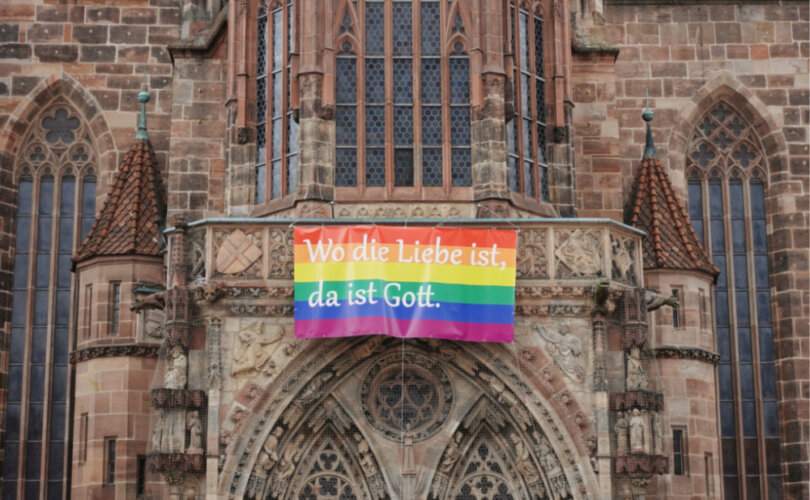(LifeSiteNews) — The German bishops have adopted a new Church employment legislation, which allows employees to live openly in same-sex or “re-married” relationships.
Only a few days after the German bishops’ ad limina visit to Pope Francis, the German prelates introduced their reformed employment regulations for employees of the Catholic Church in Germany.
The German Bishops’ Conference (DBK) announced on Tuesday that they passed the new law with the necessary majority at their plenary meeting. The “basic order of ecclesiastical service” states that employees’ private lives, “in particular relationships and intimacy, are not subject to legal assessment.”
Employees, including Catholics, will therefore no longer face termination for living in a “second marriage” or a same-sex relationship.
This new law will affect only lay people working for the Church and not priests, seminarians, or members of religious orders, according to the text.
The new employment law states the following:
Diversity in church institutions is an enrichment. All employees can be representatives of God’s unconditional love and thus of a Church that serves the people, regardless of their specific tasks, their origin, their religion, their age, their disability, their gender, their sexual identity, and their way of life.
As a revision to a previous draft, the term “sexual orientation” was replaced by “sexual identity.”
According to a report by katholisch.de, the German bishops’ news outlet, the law was first adopted by the Association of German Dioceses (which is headed by the bishops) with a vote that requires a two-thirds majority. The plenary assembly of the German dioceses includes all diocesan bishops and, if applicable, the diocesan administrators.
The new “basic order of ecclesiastical service” is now episcopal law. However, to take effect in a diocese, it must be enacted by each diocesan bishop for his own diocese as a particular law. In the last amendment in 2015, three bishops expressed reservations and delayed putting it into effect.
The reform of the employment law has been in the making for months. At the fourth Assembly of the Synodal Way in September 2022, more than two-thirds of the German bishops voted in favor of a document that called for a change of the labor law of the Catholic Church in Germany in order to allow employees to live openly lifestyles contrary to Catholic doctrine on sexuality.
READ: German Synodal Way approves text calling homosexual acts ‘not sinful’ and ‘not intrinsically evil’
In addition to the new law allowing employees of the Church in Germany to live contrary to the Church’s teaching on sexuality, the change of the phrase “sexual orientation” to “sexual identity” indicates that German bishops believe the claim that people are “born” as homosexuals, and their erotic inclinations are, therefore, part of their identity.
As LifeSite’s Pete Baklinski demonstrated in 2021, the assumption that someone can be “born gay” is not backed up by any valid scientific facts:
Science has made it clear that there are no known biological factors, such as a ‘gay gene’ for instance, that can be used to distinguish someone with same-sex attraction from someone with opposite-sex attraction. The pro-LGBT British Royal College of Psychiatrists admitted in a 2014 position paper that same-sex attraction is not something one is born with but is determined by a number of factors, including ‘postnatal environmental factors.’ Psychologists have pointed out that childhood trauma, especially in the area of the child-parent relationship, is a key factor in the development of same-sex attraction.
Over 800,000 people work for the Catholic Church in Germany or its institutions. According to Statista, the Catholic Church in Germany received 6.73 billion euros in church taxes in 2021.

